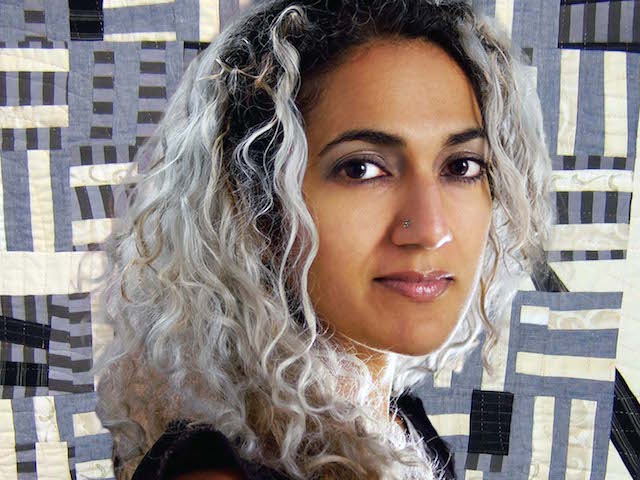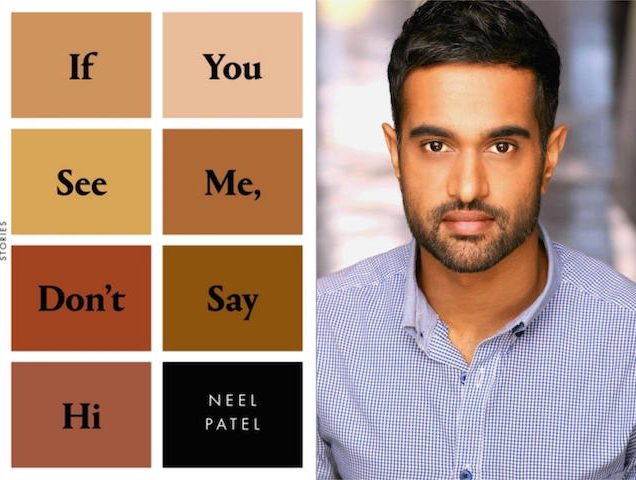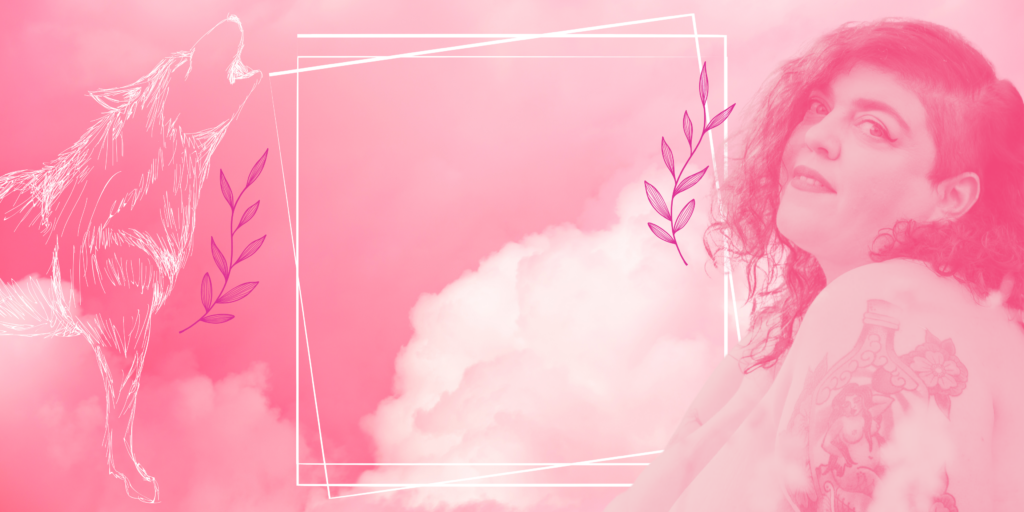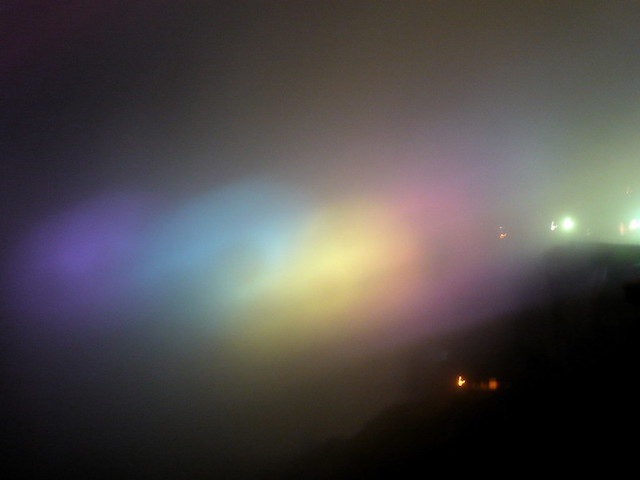The writer talks about her new memoir, Olive Witch, subverting her identity, and the tenuous link between memory and writing.

August 10, 2017
There’s nearly nothing that Abeer Y. Hoque can’t do. A writer of fiction and nonfiction, an intrepid traveler, and a chronicler of stories from around the world not just in words but in photographs as well, Abeer has spent years creating many different kinds of art. Here, I talk to her about her latest book, a remarkable multi-genre memoir of her life shuttling mostly between Bangladesh, Nigeria, and the United States. Called Olive Witch, it was published by Harper360 to much critical praise in February of this year. Visit her website for more information about her other works and for dates for Olive Witch events in your area.
Piyali Bhattacharya
I want to start by acknowledging that the word “memoir” in itself inspires reflection, looking back. What made you decide that this was the time in your life to write a memoir when, after all, you are so young?
Abeer Hoque
The words autobiography and memoir are often used interchangeably, but my understanding is that the former is an account of a whole life, usually long lived or at least interestingly lived. And the latter could be just one (momentous) day in a life, or one’s childhood years, and so on. Olive Witch is a growing up story. True, it stretches into my early 30s, but that’s about how long it took me to find myself. In the first 100 pages, I was still very much a child.
I can’t say it was some deep reflective impulse that made me write memoir. I started off as a poet, and poetry remains my first love, and when I joined an MFA program at the University of San Francisco, they did this lovely thing where they had all the students in all the genres come together before our classes started and take a summer course in autobiography. We read some memoirs, discussed them, and then had to write our own 40-page memoir. I found it so much fun to write these little stories from my childhood in Nigeria that I thought I’d write a book of them. That was the first version of Olive Witch. I love writing creative nonfiction: blog posts, journal entries, personal essays, memoir, Facebook notes… I had to work at getting better at fiction, but nonfiction has always come easy to me.
PB
Speaking of the word memoir and how it relates to memory, let’s talk a little about a line that comes fairly early in the book: “In that moment, I realize memory is a treacherous thing.” How has your memory betrayed you or come to your rescue while writing this memoir?
AH
Ah, the idea of real versus my perception is something I had to ignore just to write Olive Witch. I had to trust that I was doing justice to my emotion of that moment, if not the facts–which are necessarily subjective. And now that I’ve set my version down in print, I can only apologize to those who might remember it differently. I might even have to excuse myself to myself because the story I chose to tell is only one version of myself, and to boot, the only version I could see at that time.
PB
If your own memory ever felt like it was escaping you, did you ever seek the aid of family members or friends? And what was it like to talk to people close to you about the process of writing a memoir? Did they want to know if they were mentioned in it, and did their own memories feature at all in your interpretation of the past?
AH
I think I only focused on writing the stories that were very clearly embedded in my memory, that were part of my self-examined history. If it were a fuzzier thing, then I didn’t bother because if I didn’t know the basic structure of the story, then I wouldn’t even be able to write the contextual details, for example, what the room looked like, what the weather was, what I felt before, during, after. For me, those details can be as important to the story as the facts. Writing a memoir is a pretty self-centered venture. I’m telling one version of the story, and it might sound like that’s the only version, even though it can’t be. No one person could possibly know the whole story, or even one right version of it. But one can’t even start writing without some ego in the mix. I’ve been lucky in that people haven’t pushed back much. If they did, I’m willing to admit that my memory is faulty. But I hope that the truth of the emotions comes through.
PB
I’ve been thinking a lot about the word “brown” lately, and I thought about it even more while reading your book because you describe being a girl of Bangladeshi descent growing up in Nigeria, and then moving to the U.S., where your allegiances to both South Asia and to Africa had to compete with other parts of your identity. There was no box, as such, for you to put yourself into–not even the box that other South Asian Americans are lassoed into. The confusion of this reality is strikingly rendered in a chapter called “Burning,” in which you describe trying to figure out whether you belonged on the “black side” or the “white side” of your college dining hall, given that your friends in Nigeria were almost all black, but not in the way of the African Americans at your college, and on the other hand, the South Asians you were meeting in college seemed to have a kind of unspoken bond that you couldn’t quite (or didn’t want to) penetrate, not having really grown up in America. I wonder if you can talk a little bit about what it meant to be a Third Culture Kid in this way, and how brownness, versus blackness or whiteness, factors into that?
AH
It was a startling thing to me to realize that the African Americans in my college were so different from the Nigerians I had grown up with. As it was, even the Nigerians were a sea change away from me growing up, though at least we had the same geographical and educational context.
The differences between Bangladeshi and Indian immigrants (in the 80s and 90s at least) was also fairly stark. There were religious differences, cultural differences, economic differences, and each of these was a barrier onto itself and taken all together, seemed insurmountable. It took me some time to understand how to relate to the other “browns.” I had to understand how much of my personality was mine or constructed, how much of my life I could reveal to others without fear of repercussion, how to find the resonances that we all have, no matter how different we might be.
It took me even longer to begin to understand the African American experience. Their centuries-long history of oppression in this country is not easy to grasp without reading history and memoir, speaking to people, seeing the different spaces they inhabit.
The Third Culture Kids have yet another filter to their perspective, having grown up in one country, living in another, and ethnically from a third. It doesn’t necessarily make it harder, but it does sometimes limit the contexts you understand at first glance. And not always! I have friends who grew up in Bangladesh but are familiar with many aspects of American pop culture because they got some of the TV channels and programs, whereas because we didn’t have a TV growing up in Nigeria, a lot of that was alien ground for me when coming to the United States.
I’ve found it easier to relate to people; the older I get, the more comfortable I am in my skin. I can admit to my faults and inconsistencies and limitations a little more easily. And I find synchronicities more readily too, and I love that.
PB
It seems that political unrest, and even civil war, featured heavily in your parents’ lives, and in your formative years. From Bangladesh (your mother studied in West Pakistan on the brink of its war with East Pakistan to form Bangladesh), to Libya, where your parents were living when Gaddafi took over, to the memory of the Biafran War looming large during your childhood in Nigeria… Can you talk a bit about how global politics has shaped your life, and about how much the shifting politics of Asia, Africa, and the Americas play a role in what you write?
AH
There are so many great and small historical events that have led to where my family and I are now. My father was born pre-Partition, in British Raj India in 1934, and my mother post-Partition, in East Pakistan in 1948. They both studied in West Pakistan, but moved to Libya after getting married in 1969, just as that country was being taken over by a military coup and General Gaddafi. During their four years in Libya, they were part of the worldwide expatriate efforts to fund and support Bangladesh’s independence movement, which culminated in war and independence in 1971.
I was born two years later in Nigeria, a country still suffering from the aftershocks of the terrible civil war of Biafra. Successive military and civilian governments failed, one after another, plunging Nigerians into poverty, draining its economic promise and political will. We left in 1986, for yet another country that promised much in opportunity and new beginnings, America, and that story is still being written (and rewritten).
Given all that, perhaps it’s inane to say that I don’t think of political movements actively when I write. I am drawn to the personal story, and of course the personal is deeply political, and certainly the wider arcs of history cut clean through to the heart. But that’s my preferred angle. I’ll start from the inside, an immediate emotion, the center of an unwillingness, a gesture, and maybe eventually, I’ll get to the geopolitics and farther, but you’ll know who and what, far before how and why.
PB
As a Bangali sister, I have to ask you about the role that Bangla as a language plays in your life. With whom do you speak it, and do you speak any other languages? Both French and Igbo make appearances in the book. How did you find those languages making their presence known in your writing in English? I sometimes find that all the languages I speak flow out of me when I’m writing, and I’ll come up with a sentence with phrases of three different languages in it. Does this happen to you, and how conscious were you of these choices while writing Olive Witch?
AH
I wish I had that kind of facility with my second languages! My Bangla is good enough for conversation but not enough to read or write. I’ve forgotten my French to the point of not following conversations at all. And my Igbo was never good enough to speak it confidently, and so it vanished when I was no longer surrounded by it. Arabic is another language that figures in my linguistic history because of my family’s Muslim heritage and years of memorizing surahs and going to Islamic School.
All of these come into my writing in some fashion, more likely in cultural contexts than linguistic. When I do use non-English words in my writing, I prefer not to explain or even italicize them. It feels like an othering of that language and so I’d rather the reader figure it out by context or be ok with not knowing exactly what was said. Both Chimamanda Ngozi Adichie (in Half of a Yellow Sun) and Junot Diaz (in The Brief Wondrous Life of Oscar Wao) use Igbo and Spanish (respectively) in their books without explanation or glossary, and I love that. It centers their bilingual experience and cross-pollinated geographies, rather than the Western/English hegemony.
If I could gear up the will and courage to learn to read Bangla or Spanish language literature, I know it would affect my English in profound ways. One of these days.
PB
This issue of how different languages can sometimes fit like puzzle pieces into each other leads me to my next question, which is about the form of this work. You have called Olive Witch a multi-genre work, which I would agree with considering the stunning moments of poetry, little missives about the weather, text messages, post-it notes, and other reflective material readers are offered in the text, forcing us to pause and think about why the author is giving us this information in this way in this moment. How did this creative form of expression come to you, and how did you pull it off in the writing? That is to say, it can be tricky to work through unconventional modes of storytelling and Olive Witch does it so well–did you always know you wanted the work to be pieced together this way, and when you were first experimenting with it, did it take many tries to get it right?
AH
Olive Witch has gone through so many iterations! The first version was in 2001, a 40-page assignment for the autobiography class I mentioned earlier. The second draft was my 150-page thesis for my MFA program in 2003. Both of those were primarily set in Nigeria and the United States, because my Bangladesh visits had been limited to summer holidays as a child.
In 2006, I went to Bangladesh (to write a different book), and ended up staying for almost three years. This filled out a third and brand new section of the book.
I rewrote each new draft multiple times with the help of so many generous friends and editors. One revision made the entire manuscript chronological–before I had interleaved past and recent past, partly because it had seemed like a cool thing to do. Another revision, suggested by my brilliant editor/writer friend, Adrienne, involved taking the chapter set at a psychiatric ward, and interspersing sections of it throughout the book, to create tension and forward narrative drive. I would have never thought to do that, but I think it worked really well.
In 2012, I ended up, totally unexpectedly, back in Nigeria after a quarter century away, and so of course, that became part of the book. At every juncture between 2003 and 2012, I thought that I was done, but as it turns out, the book wasn’t done with me.
I included poetry in the manuscript because I can’t leave poetry out of anything I do. It’s a natural part of how I write or even think about writing. And I included weather conditions and temperatures for each chapter, because I wanted more layers to the writing, to set a mood, or have a sense of the outside or the air. Our lives are complicated multi-layered experiences, and using all these devices and conceits and genres are my way of emulating some of those complexities.
PB
If I may, you are incredibly brave in your discussion of depression in the book. I noticed that the sections that were about depression were the ones written in unconventional ways, and that the bulk of their text is written in third person, as opposed to the first person, autobiographical feel we get through the rest of the book. Was this a specific choice you made–how did the mode of fractured notes and little snippets of poetry help you write about mental illness? Also, these notes end so beautifully–not tied up in a bow, but optimistic at the end of the book, with these startling lines: “I’m losing faith / in losing faith / it never leaves me.” Where did those lines come from?
AH
As I mentioned above, the psych ward sections were originally written as one chapter. I wrote it quite early on, in 2001 to 2002, and it was, as expected, extremely difficult to write. I had a folder I had saved from my time in the ward, and it contained my journal entries, scrawled in pencil, ward guidelines and handouts, prescriptions for antidepressants, therapy appointments, and things like this. I hadn’t actually looked at the contents of the folder for perhaps four years, and even opening it was like looking at a wound. I had the sensation that someone else had gone through this experience and collected all these papers. It wasn’t that I was out of my mind then, and I was okay now, but more that I had split into different people, all versions of me, some more fatalistic than others. And the only way I knew how to express this at the time was by splitting my writing self into multiples as well, using POV and layout. At the time, I didn’t know that third person is often used as a technique when writing about pain or trauma, creating distance, but it certainly served that purpose as well.
My journals had started off in my teenage years as letters to God, a throwback to Judy Blume’s famous protagonist, Margaret. The idea of losing faith was something I struggled with all through my 20s, both in religious and personal contexts. Around the time of my hospitalization, I wrote my friend Goose about losing faith, and he wrote back about losing faith in the idea of losing faith. This fit me. It turns out I am both a relentless optimist and also understand what it’s like to lose all hope in things getting better. So each of the lines of that poem, “I’m losing faith / in losing faith / it never leaves me are true,” sometimes separately, sometimes all at once.
PB
Finally, a question about identity for someone like you, who has lived in so many different places and been, it seems, so many different selves. Since such a big part of what both you and I do is write identity-driven narratives, I am remembering a conversation that you had with another Bangali sister, the poet Tarfia Faizullah, for The Margins, the title of which was “A Cupcake is Identity as Much as Syntax is Identity.” In that dialogue, the two of you talked about the fact that Li-Young Lee says, “syntax is identity.” You agreed that this was true for you, but that you also wanted to subvert that idea, with Tarfia saying, “I think the notion of identity, the idea of a singular identity, is a false idea. I also think that syntax is true and false in that syntax can shift and change in the way that we can shift and change. And therefore it is very much identity if you think of identity as an unfixed thing that is allowed to morph and change… A cupcake is identity as much as syntax is identity. A cupcake is a dessert as much as it is not identity.”
Taking the history of that discussion into account, what are the ways in which writing a memoir has made you challenge and subvert your own identity? To use the syntax of referring to yourself as a memoirist, a keeper of remembrances, an examiner of one’s own past–how has that changed your idea of yourself?
AH
What a great question for any writer. I have long had this motto to tell the truth sooner. And I think this works for me as a way to connect with people, to be open to the world, to honor and engage and respond. I’ve been doing it my entire adult life, more than a decade before I became a writer, and I still follow it in my creative life, whether in fiction or nonfiction or poetry or photography.
However, I think (like with memory) we change the very thing by writing (remembering) it. This is especially true for nonfiction, which we hold to some standard of truth and reality. But the truth remains that malleable thing, shifting under different lights and at different times and in different bodies. I understand that more and more as time goes on. As for my identity, which like syntax or cupcakes, is changing as we speak, I’ve had a lot of practice with talking fast. It’s the thinking slow I need to work on.



